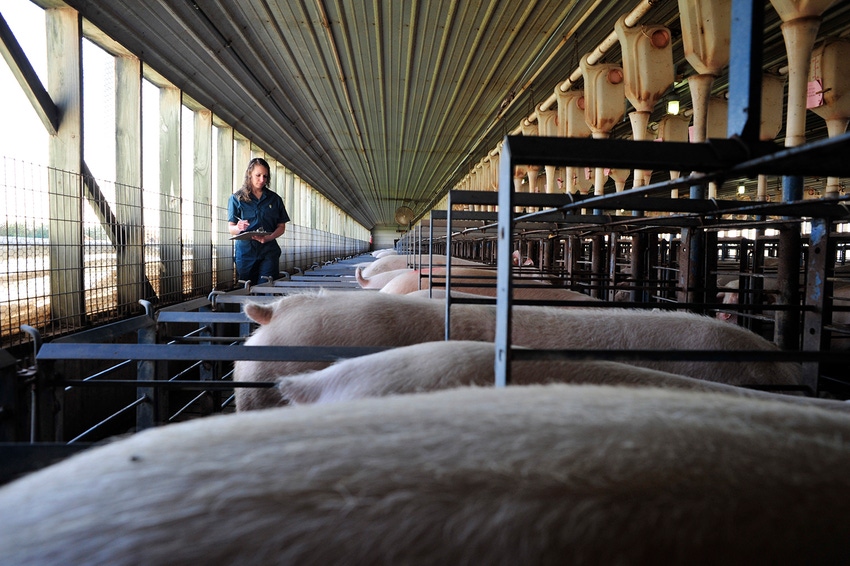Goal of Individual Sow Care is to proactively assess sow health, performance and environment to reduce loss, improve productivity.

After successfully implementing an individual pig care program for the past 15 years and training thousands of caregivers across the country, Zoetis has turned its attention to the sow. During Iowa Pork Congress last week in Des Moines, the company rolled out Individual Sow Care, a comprehensive, on-farm training program that teaches caregivers and production managers the value of conducting health, welfare and performance assessments on every sow, from every breed group, every day.
"We realize that there has been a trend over the last 10 to 15 years of increasing sow mortality," says Eva Jablonski, technical services veterinarian for Zoetis. "While we know that some of that is due to lameness and what we refer to as POPs, pelvic organ prolapses, a lot of sow deaths, approximately 39% according to some recent research, are from unknown causes, and really individual sow care will help to identify some of those reasons why sows get sick."
However, Jablonski says the initiative to start the program isn't centered on sow mortality, but more so on sow care. The effort will be led by three bilingual pork production specialists and 13 technical service members on the Zoetis pork team. The one-day training session will include a classroom session followed by small group, in-barn training and will focus on eight areas to observe sows for individually every day: behavior, environment, feed and water intake, body and skin condition, perineal area, feces, feet and legs, and underline.
"It'll be three to four caregivers with a trainer in the barn, spending time observing sows in gestation and lactation," Jablonski says. "Piglets will also be observed in lactation as we know that piglet quality can be a significant indicator of sow health."
The veterinarian says the training will also cover how to properly take a sow's temperature, something many caregivers may not know how to do.
"I think that's something that we take for granted — that all caregivers know how to take a temperature of a sow and we want to make sure that they do. We also want caregivers to understand what a normal temperature is versus what a fever is, because that scale is very different in pigs than it is in humans," Jablonski says.
Before a training is conducted, Jessica Rasmussen, senior marketing manager for the Zoetis pork team, says it's important for producers to fill out a sow farm profile. The collected background information on the sow farm will be utilized for training and can help customize the training to that farm's needs.
On the day of the training, presentations in both English and Spanish will be available for the classroom portion. During the in-barn portion, each trainee will be given a kit, which includes a clipboard, sow assessment form and a thermometer. After the training is completed, the barn will receive a poster to put up in the facility, to remind the pork production team to continue to make those eight sow observations daily.
"It's meant to be a good leave behind, as a reference to have that continual implementation of the program and the important things to observe in the sow," Rasmussen says.
While the Zoetis team plans to work closely with herd veterinarians to customize training for specific pork production systems and to conduct the in-barn training, Jablonski says the goal after the training is that the staff can be extra eyes on the ground for the herd veterinarian.
"As a former production veterinarian, what I really valued about Individual Pig Care, and what I believe that Individual Sow Care will also offer, is help with the communication and objective measurements about what is going on in the sow barn," Jablonski says. "If X percentage of sows are affected with this or X percentage of sows are abnormal today, that really helps production managers and veterinarians alike to understand what is going on in the sow barn and determine what the next steps should be. Does the veterinarian need to go out to that farm tomorrow? Do we need to start some sort of a treatment? With everyday implementation of Individual Sow Care, you can plan your next steps from good objective measurements and communication."
For more information on Individual Sow Care, veterinarians and producers are encouraged to contact their Zoetis representative.
About the Author(s)
You May Also Like





